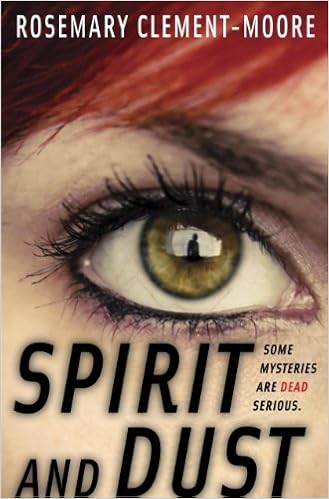If you’ve never had a face-to-face pitch session with an agent or editor, it can be a little terrifying. But as a wise cliché once said, we have nothing to fear but fear itself.
have nothing to fear but fear itself.
I’d love to tell you there’s nothing to be nervous about, but it would be pointless (and hypocritical). But I can walk you through things, including what to say and how to make the most of your time, so at least you’ll know what to obsess over.
A pitch appointment is a little like a job interview for your book. Start with a smile (or try not to frown), introduce yourself, and sit down. The editor/agent will say “Tell me about your book.” Then you are going to talk for a maximum of two to three minutes, starting with the boiled down essence of your book: the genre, the main character, the primary external goal and obstacle, and internal goal and obstacle, and what is at stake for the character.
It’s okay to refer to notes, but it’s ideal if you can memorize your key points and just talk about your book as naturally as possible.
Remember that a pitch is not a blow-by-blow summary of your plot. Imagine you’re trying to talk your friends into spending $20+ dollars to go see a movie in 3D IMAX. You’re going to give them the most exciting story details.
This is my tried and true template:
 "Character X is in this status quo situation when this inciting incident happens. X must accomplish this external goal but this obstacle seems insurmountable. When this complication happens, X must learn this lesson (interior growth) in order to finally (restate the end goal with regard to the climactic decision/battle/emotional boss fight) or else this terrible thing will happen (stakes)."
"Character X is in this status quo situation when this inciting incident happens. X must accomplish this external goal but this obstacle seems insurmountable. When this complication happens, X must learn this lesson (interior growth) in order to finally (restate the end goal with regard to the climactic decision/battle/emotional boss fight) or else this terrible thing will happen (stakes)."
After you’ve given the essentials, stop for a moment to 1) breathe and 2) see if the pitchee has any questions. Be prepared to expand on things like theme, B plots, relationship characters, setting, and backstory. But it’s a pretty sure bet the agent/editor will know long before ten minutes are up if they want to look at your writing.
If the agent/editor requests you a submission, they’ll tell you exactly what they want (how many pages/chapters, etc.) and any other special instructions. If they don’t, clarify before you leave: “How would you prefer I send this?” (And for heaven’s sake, write it down right that moment!
You don’t need to bring any part of your manuscript, not even your cover/query letter. If you want to be prepared for anything, you can have a .doc or .pdf of your query and/or your first chapter(s) ready to go on your phone or in the cloud.
Here are some more things to have in your pocket:
Know to whom you are pitching. Everyone has a website, and many publishing pros have blogs or social media accounts. You don’t want to sound like a creepy stalker, but something like “Your blog post about small presses was very helpful,” or, “I loved Client X’s last book,” is a good way to open a conversation and shows you care enough to spend five minutes on Google.
Have an idea who your book would hang out with. If you can say “I see this on the shelf in mainstream thrillers next to James Rollins,” or, “it’s a mystery set in the near-future, with a hard-boiled, Dashiell Hammett type detective,” it not only gives them vital information about the book, but demonstrates you have given some thought to your audience as well as your story.
Rollins,” or, “it’s a mystery set in the near-future, with a hard-boiled, Dashiell Hammett type detective,” it not only gives them vital information about the book, but demonstrates you have given some thought to your audience as well as your story.
Come prepared with questions to ask the agent/editor. You may be done with your pitch in two minutes. Don’t waste the opportunity to network. Ask about the industry, or what’s on the agent’s “wish list,” or what books are coming out that she’s excited about.
Be someone people want to work with. Be early. Bring something to write on. For dress, you can’t go wrong with business casual, but be yourself (unless, perhaps, yourself is a nudist or on a strike from bathing). Take rejection with grace. Never put down other publishers, agents, or authors. Think positive thoughts so that you look less terrified and more approachable.
Finally, keep things in perspective. You’re going to keep writing, and you’re going to keep submitting no matter what the outcome of this pitch interview. But you still come out ahead because you’ve made a connection. Face time with anyone in the industry is never wasted. It’s a surprisingly small town, and you should never underestimate the value of networking.
That is the overwhelming benefit of the face-to-face pitch—it includes the human connection. If you’re a person that agents and editors want to work with, they’re going to be eager to find a project to work on with you. If not the one you pitch today, then the one you query in six months, or next year. A writer is more than one book.
So, be nervous, but don’t be fearful. You love your book. Organize your thoughts ahead of time, do your homework, and then enjoy the fact that you wrote an awesome book and get to tell someone all about it.
The February 2016 newsletter for The Knight Agency includes an article by Elaine Spencer about preparing for an in-person pitch. (Not coincidentally, some ended up in this blog post.)
There is a handout on pitching your book on my website called, “The Big Pitch.” The pdf will open in your browser.
About Rosemary:
She had the worst time deciding what she wanted to be when she grew up, so naturally she became a writer. Her current obsessions change frequently, but this never does: She loves coffee, dogs, history, Jane Austen, archaeology, fantasy novels, comic books, Gilbert and Sullivan, BBC America, Star Wars, books with kissing and movies with lots of explosions.
She lives in Texas but her dream is to move to a cottage. Or maybe a castle. It doesn’t have to be fancy, as long as it has wi-fi.
She is a lifetime member of the DFW Writers' Workshop.

